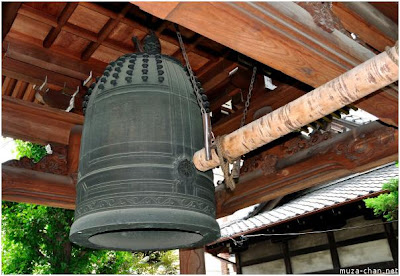|
TIME FOR CHANGE
Progress
involves moving forward. In the case of a job this can be both professional movement
and physical movement. Starting in late October I will be moving from one
county law library to another. Why the change? Career, mostly. It is a great
time in my career to take on more responsibilities. I will become a manager,
have 2 branches, and a larger budget.
|
|
|
|
“Everything
changes, nothing remains without change.”
Buddha
|
Thursday, October 11, 2012
Wednesday, September 5, 2012
Friday, June 22, 2012
Bells in Buddhism
 |
| The bell from the Chion-in Temple, cast in 1633, is the heaviest in Japan (74 tons) |
Significance of Ringing a Bell
According to Tibetan Buddhism, ringing the bell represents
an offering to all the buddhas and bodhisattvas in order to accumulate positive
karma. Also, the bell represents wisdom, so ringing the bell is the sound of
wisdom which purifies confusion. Other significance states prayers can be
released by the ringing of a bell.
Wind chimes are thought to be good luck in parts
of Asia and are used in Feng Shui. They produce pleasant ringing sounds and are
hung by the windows during hot humid summers in order to bring cooling relief. Wind
chimes were often hung around Asian temples and thought to attract peaceful
spirits while protecting against evil forces. Early on, Buddhists adopted wind
chimes and wind-bells into various rituals and the chimes were hung in large
numbers on temples, shrines, pagodas and caves.
Tibetan tingsha (or Ting-Sha) are small cymbals used in prayer and rituals by Tibetan Buddhist practitioners. Two cymbals are joined together by a leather strap or chain. The cymbals are struck together producing a clear and high pitched tone. Typical sizes range from 2.5–4 inches in diameter. Tingsha are very thick and produce a unique long ringing tone. Antique tingsha were made from special bronze alloys that produce harmonic overtones.
Subscribe to:
Comments (Atom)




